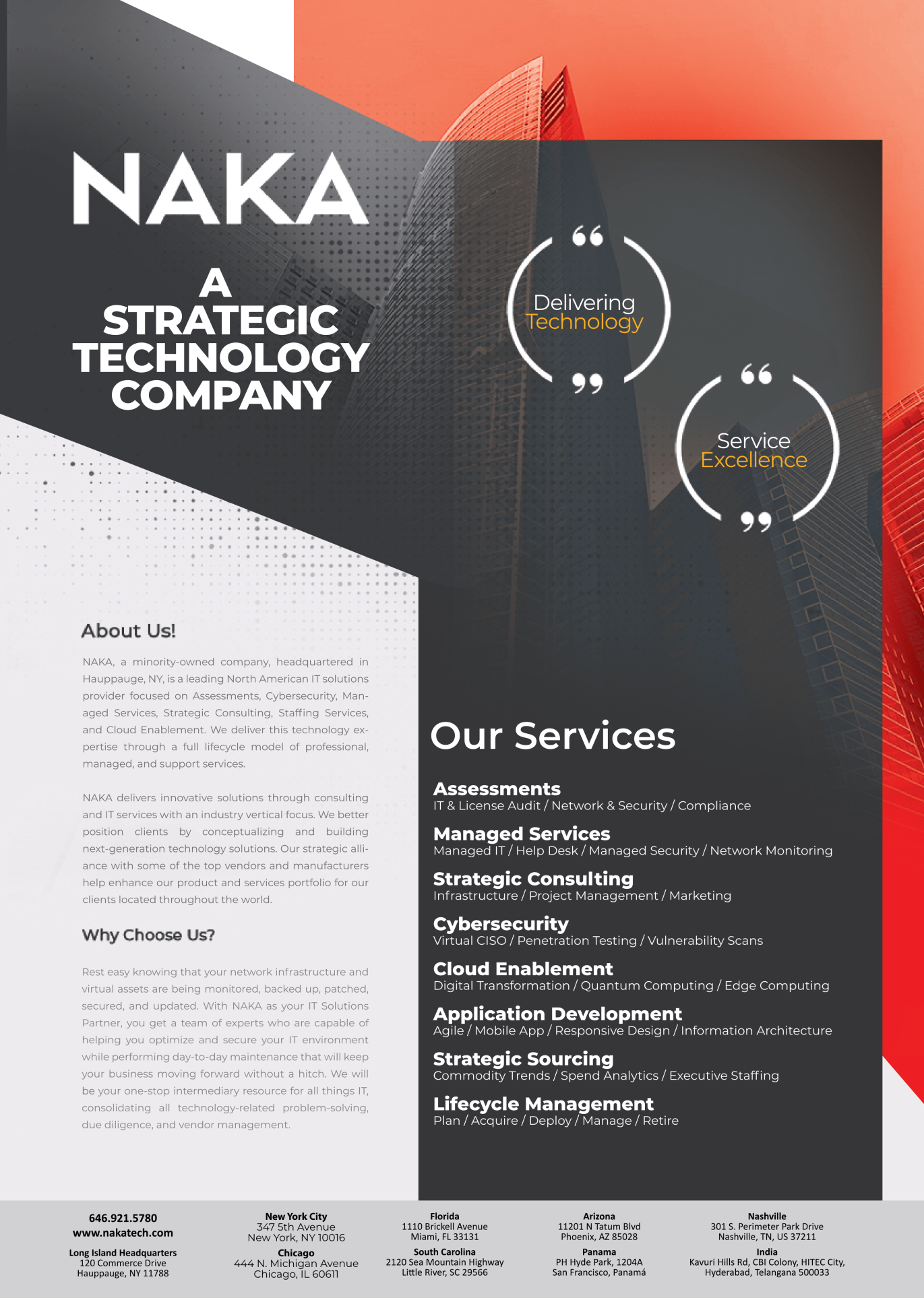Maximizing Business Productivity with Managed Services

Maximizing Business Productivity with Managed Services
External support can help boost the growth and productivity of any organization and reduce the risks associated with IT infrastructure failure. These outsourcing agencies assist organizations in providing the best resources that can benefit from managed It services.
Moreover, a managed service provider (MSP) offers outsourced technology services to businesses. MSPs manage and maintain a company’s technology infrastructure, including hardware, software, and networks.
By outsourcing their technology needs to an MSP, businesses can work on their core activities and increase their productivity. As technology continues to change at a fast speed, businesses need to keep up with new processes and practices to stay competitive and efficient.
However, this can be time-consuming and complex, especially as a company expands and its IT requirements evolve. As companies continue to evolve and grow, their IT requirements also change, making it challenging for businesses to keep up with the updated technological advances.
Managed Services Providers (MSPs) can help organizations meet they’re evolving IT needs by proactively managing their IT systems while preventing security issues and downtime.
In this blog post, we will explore how businesses can maximize their productivity with managed services and how MSPs can bridge the gaps and mitigate risks to help organizations achieve their business goals.
Using Managed Services to Boost your Business Productivity
A Managed Service Provider (MSP) offers a proactive management of IT systems to prevent security issues and downtime. MSPs provide companies with access to specific capabilities and skills, allowing them to rapidly scale their infrastructure based on their unique needs.
The global managed services market share was valued at $161.37 billion in 2021 and is estimated to exceed $300 billion by 2027. MSPs with expertise and technological proficiency can bridge gaps and mitigate risks for businesses by understanding their current needs.
Managed Service Provider has become a necessity for organizations looking at the statistics as the latter is capable of actively participating in providing values which include:
- Frequent analysis of IT framework
- Provide protection against cyber threats
- Customize data for security
- Providing connection services depending on top performances
You must know that collaborating with managed service providers can help you in achieving your organizational goals. This, in return, helps you in boosting your production speed alongside maintaining streamlined processes that require technical expertise.
1. Cost-effective Strategies
In today’s fast-paced business world, companies need to keep up with the latest technological trends to remain competitive. But the cost of hiring and training a team to manage an in-house IT department can be financially overwhelming for startups and established businesses alike.
That’s where managed services providers (MSPs) come in. MSPs offer businesses a cost-effective solution to IT management. By outsourcing IT tasks to MSPs, companies can save money on upfront costs of hiring and training staff, as well as on constantly changing technology and equipment.
MSPs absorb the costs of IT training so that entrepreneurs wouldn’t have to worry about IT experts jumping ship. Moreover, MSPs have access to the latest tools and technologies that can help companies stay competitive without having to make significant investments in-house.
2. Upcoming Expenses
Not only do MSPs reduce costs for businesses, but they also provide predictable expenses. MSPs automate routine tasks, reduce the risk of human error, and provide services more efficiently by using a range of tools and technologies.
MSPs also offer service level agreements (SLAs) that categorize the level of service that will be given and ensure that any issues are addressed in a timely manner. This adherence to SLAs contributes to predictability in terms of cost and service delivery.
Furthermore, MSPs provide businesses with a level of expertise that they may be restricted to otherwise. MSPs employ professionals with diverse skill sets and experience in various industries.
This allows them to provide tailored strategies that meet the unique needs of each business. MSPs have a deep understanding of the latest technological trends and can provide companies with the assistance they need to make informed decisions about their IT infrastructure.
3. Improvise Skill Sets for Better IT Services
Managed IT services have become an essential part of business operations in today’s digital age. Many companies face challenges in maintaining efficient and reliable IT systems due to the constant changes in technology and the need for specialized skills.
Managed IT services offer organizations a solution to their IT needs by providing an extended team of IT experts who have specific skills tailored to organizational requirements.
This provides business owners with the latest technology and business-grade solutions which includes remote monitoring and management, backup and disaster recovery, and cloud computing, which helps maintain uptime and profitability.
4. Database Security
In addition to improving efficiency and reliability, Managed IT services offer another significant benefit, which is boosting IT security and compliance. With cybercrime predicted to cost the world $6 trillion annually by 2021, business security plays a critical role in setting organizational and operational priorities.
All devices used in the workplace transmit data and need to comply with strict security measures. Managed IT services can take charge of security and compliance, ensuring adherence to regulations like GDPR, PCI, and ISO and providing the technological perspective needed for optimal security.
5. Allows Expert Handling
By integrating with a Managed IT services provider, organizations can focus on their core activities, knowing that their IT requirements are in expert hands. They do not need to worry about maintaining an in-house IT team or keeping up with the latest technology and regulations.
Instead, they can focus on growing their market share and achieving their goals. In conclusion, Managed IT services provide organizations with access to specialized skills, cutting-edge technology, and business-grade solutions that improve the efficiency and reliability of IT functionalities.
They also offer enhanced IT security and compliance, which is crucial in today’s world of cyber threats and data breaches. By leveraging the expertise of Managed IT services, businesses can optimize their IT systems and achieve sustainable growth.
6. Better Approach Using Outsource Services
Managed service providers offer a better approach to IT maintenance by providing 24/7 coverage, remote management and monitoring, and proactive technical solutions to ensure reliable IT operations and mitigate risks.
By outsourcing technical requirements to an MSP, businesses can access network management resources, cloud storage, and trained IT experts without upfront investment.
This allows the core IT team members to focus on strategic IT projects while also keeping up with the latest technology advancements through the MSP’s up-to-date IT infrastructure and security patches and software updates.
As the global managed services market continues to grow, businesses can benefit from the scalability and round-the-clock IT support provided by MSPs, reducing the potential for downtime and improving operational efficiency.
Conclusion
Partnering with a Managed Services Provider (MSP) can help businesses maximize their productivity and stay ahead of the competition. By outsourcing IT requirements to an experienced MSP, organizations can access specialized technical resources, state-of-the-art technology, and 24/7 support without any upfront investment.
MSPs can help organizations improve the reliability and efficiency of their IT infrastructure, enhance IT security and compliance, and focus on strategic IT projects and initiatives.
The market for managed services is growing rapidly, and the need for cloud-based managed services, specialized MSPs, and cost-effective solutions is driving this growth. Ultimately, by leveraging the expertise of MSPs, businesses can achieve sustainable growth and success.



